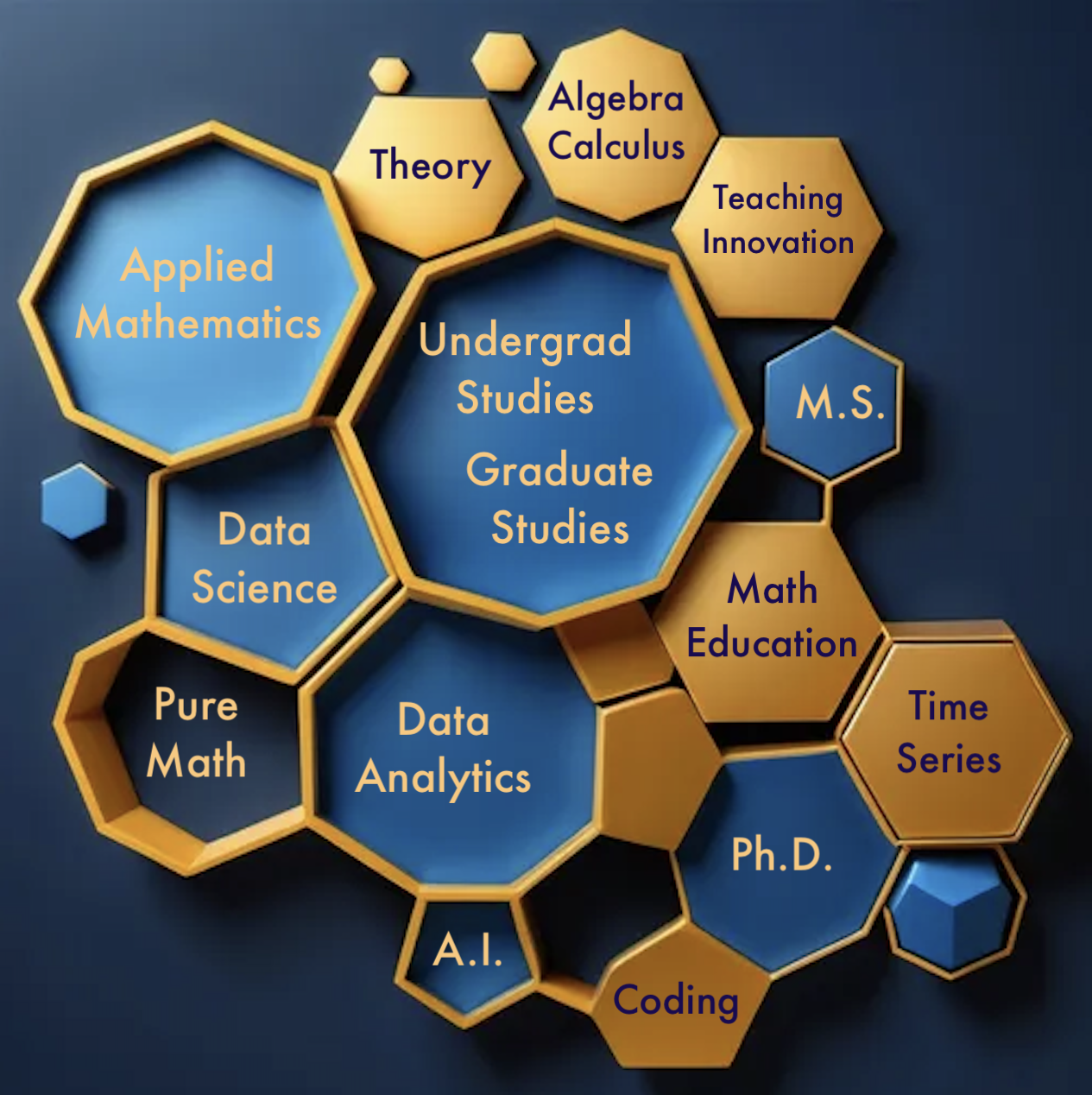Undergraduate Degrees Offered
- Mathematics (Applied Mathematics) – Bachelor of Science
- Mathematics (Pure Mathematics) – Bachelor of Science
- Mathematics (Statistics and Data Science) – Bachelor of Science
General Program Requirements
Admission, retention and graduation requirements for students enrolled in degree programs in the Department of Mathematics are based upon the general admission, retention and graduation requirements of the University. However, two units of algebra, one unit of plane geometry and one-half unit of trigonometry are required of all students who elect to pursue any curriculum offered in the department. For more information see the Undergraduate Catalog.

Pure Mathematics
The pure mathematics concentration is designed for students who value the study of mathematics, not only for application, but also for its own sake, and are interested in finding new formulae and methods while utilizing insights from a tradition of thousands of years. The pure mathematics concentration is recommended for those interested in graduate study in pure mathematics, and those who seek a rigorous education that involves not only rote computational skills but also rigorous explanations of how mathematics works.
Applied Mathematics
The applied mathematics concentration is designed to provide students with training in the applications of mathematics in engineering, sciences, medicine, health care, business and finance. Applied mathematics concentration is recommended for those interested in the mathematical study of general scientific concepts, principles, and phenomena that, because of their widespread occurrence and application, relate or unify various disciplines. The use of computational methods and implementation of algorithms on computers is central in the study of applied mathematics.
Statistics and Data Science
The statistics concentration is designed to provide students with statistical tools and conceptual foundations in quantitative reasoning to extract information intelligently from data. The statistics concentration is recommended for those interested in collecting, analyzing and interpreting data statistically, as well as effectively communicating and presenting the results relying on data. Statistics is becoming more important in modern society in providing succinct information for making decisions, and is used in a wide variety of fields including science, technology, business, health, and social sciences.
Minors and Concentrations
A minor or concentration in mathematics, statistics or data science may be very valuable as an addition to any degree program. For information see: Minors and Concentrations in Mathematics and Statistics.



